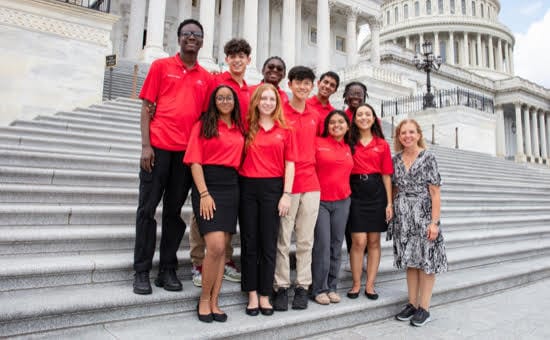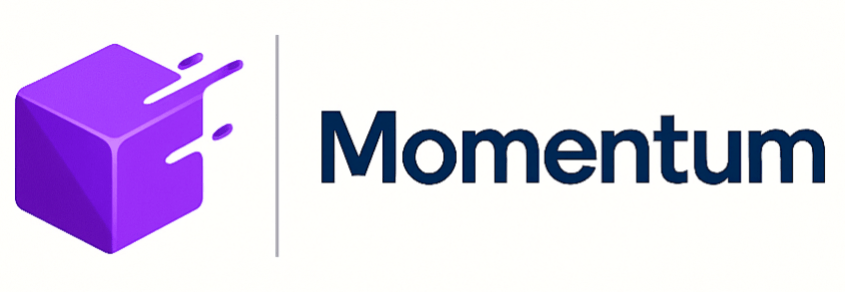- Momentum
- Posts
- 🚀 Upcoming workshops & how to conduct research in high school
🚀 Upcoming workshops & how to conduct research in high school
It's networking time.


Hello Momentees!
About one month left until school…. Anyways:
If you haven’t seen our latest edition, check it out here!
Today, we will focus on UPCOMING EVENTS and conducting RESEARCH in high school! 🔬🚀
In this momentous edition:
Upcoming Opportunities
Workshops/Panels
How To Conduct Research In High School
Career Highlight: Data Scientist
Let us get started!
Upcoming Opportunities

This program is best described as a medical mentor program. Participants will attend daily virtual sessions or in-person programs with presentations/interactive sessions from a variety of general pediatricians, specialists, including surgeons, nurses, pharmacists, dietitians, infectious disease, ophthalmologists, radiologists, child life, and therapists (i.e., physical, speech, occupational, or cognitive).
The application opens in December.

Bank of America Student Leaders is a competitive summer program for U.S. high school juniors and seniors. It includes an 8-week paid internship at a local nonprofit and a week-long, all-expenses-paid leadership summit in Washington, D.C. The program focuses on community service, civic engagement, and career readiness.
The application opens in October.

This program empowers youth to address local issues, with a focus on road safety, through service-learning projects. Teams will receive training, funding, and a national network to support their efforts in making communities safer.
Applications are still open!!
Upcoming Events



Conducting Research in High School

Academic Research refers to…
“a systematic investigation into a subject, typically within an academic or professional context, aimed at discovering new knowledge, testing theories, or contributing to a body of understanding”
How Can You Do Research in High School?
Students conduct research in three main ways:
Research Programs - apply to current structured programs (e.g., MIT RSI)
Independent Research - conduct original, self-directed research
Faculty Research - assist a current researcher on their projects
Research Programs
A Research Program is…
“a structured opportunity—usually hosted by a university, nonprofit, lab, or organization—that allows students (like high schoolers or undergrads) to participate in real research projects under the guidance of mentors.”
Your tasks may include, but are not limited to… literature reviews, data collection/analysis, poster-making, paper annotations, and outlining & drafting manuscripts.
Often, you will be named as one of the authors of the paper when your research mentor publishes their work.
Check out these links for research opportunities:
Independent Research
Independent research is….
“a self-directed, in-depth investigation into a topic of interest, where the researcher takes primary responsibility for the project's direction, design, and execution, often with limited but meaningful guidance from a mentor, teacher, or advisor.”
Key Features of Independent Research
Student-led: You choose the topic, formulate the question, design the study, and carry it out.
Mentorship-light: A teacher, mentor, or supervisor might provide feedback or check-ins, but you’re expected to lead the process.
Original: You’re expected to create new insights or approaches—this could be an experiment, analysis, creative interpretation, or theoretical framework.
Process-driven: Emphasizes critical thinking, problem-solving, and perseverance more than a perfect result.
Check out these links!
Faculty Assistant Research
Researching with faculty can be informal or formal, structured or unstructured. Although students conduct research with faculty in research programs, this section refers to a more unstructured, flexible, and perhaps more informal way to research. This research involves finding a researcher who is looking for research support or who would like to provide an aspiring scholar (like yourself) an amazing opportunity!
Students who conduct research with faculty usually find opportunities by…
Reaching out to current faculty/researchers in local colleges/nonprofits/research centers.
Network with your teachers, school counselors, mentors, undergraduate research assistants, etc., to find research connections.
Volunteer Research
Although most of the research you do will technically be considered volunteer work because you will often be unpaid, Volunteer Research usually involves…
“crowdsoucing research platforms that connect everyday people with real-world research across science, health, and humanities.”
They’re ideal for students, curious learners, educators, or anyone wanting to contribute to research or scientific discovery.
These platforms are all examples of citizen and volunteer-based research, where people from all walks of life can participate in real science or humanities projects — no advanced degree required.
Whether you're classifying galaxies, contributing to health research, folding proteins, or transcribing old books, these platforms make it easy to learn, contribute, and support discovery.
They're especially useful for students, educators, or anyone interested in hands-on learning, making a difference, or exploring science and history in an accessible way.
Check out these resources!
ResearchMatch — A secure, U.S.-based registry that connects people with health and medical research studies. Volunteers can sign up to be matched with clinical trials, surveys, or other IRB-approved research based on their health profile, interests, or background.
Zooniverse — A citizen science platform where volunteers help scientists analyze massive datasets by doing tasks like tagging animals, identifying galaxies, or transcribing documents. It covers astronomy, biology, climate science, medicine, history, and more.
SciStarter — A central hub that curates over 3,000 citizen science projects across topics like health, the environment, astronomy, and education. It helps individuals find, join, and track projects, and partners with libraries, schools, and researchers.
NASA Citizen Science — A branch of NASA that invites the public to contribute to real NASA research projects—like spotting exoplanets, tracking auroras, or recording environmental data. Open to anyone and focused on space and Earth science.
Foldit — A science-based puzzle game where players fold proteins in 3D to help solve real-world problems in biochemistry. Players' solutions can help researchers understand diseases or develop treatments.
Distributed Proofreaders — A crowdsourcing platform where volunteers help digitize and proofread public domain books for Project Gutenberg. Anyone can contribute to making historical texts accessible online.
Career Highlight
Data Scientist

Data scientists drive impact in every field—from tracking diseases in healthcare to powering TikTok trends, optimizing sports strategies, and fighting climate change.
Check out this link from CareerOneStop for more information about Data Scientist careers!
Highlights
The 4th largest rate of growth from 2022 to 2032
Median salary: $103,500/year (BLS, 2023)
#6 Best Job in America (2024) – U.S. News & World Report
Volunteer Resources
Opportunities — page with archived and current internships, programs, scholarships, and links to other college/career newsletters
Guidebook Bank — a bank filled with informational guides on professional development, college-bound guidance, and career exploration support.
CollegeCareerHub — our LinkTree where all our resources will be permanently available.
That’s it for our third edition!
Don’t forget to subscribe for updates!
Until next time…
Best wishes,
The Momentum Team

